Opinion

COVID-19 amplifies a tenuous holiday, especially among people of faith.

The COVID-19 pandemic has revealed the dark and disturbing injustices and inequities that have always existed in our health care, economy, and government. Though the virus may not discriminate, our humanmade systems and structures do. And in the United States this means that those who are feeling the impact of this disease most acutely are those who have been historically, structurally, systemically, and politically marginalized and oppressed.
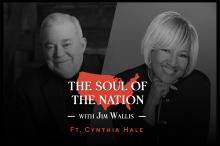
Rev. Dr. Cynthia Hale, the founder and senior pastor of the Ray of Hope Christian Church, talks with Rev. Jim Wallis about the need to observe the sabbath during this time of the COVID-19 crisis.

How will progressive Christians react to rising anti-Semitism in this pandemic?

But the church peddles ableist ideas in devious ways: It proclaims to be pro-life but mirrors the world’s messaging that productivity and health are drivers of worth. It weaponizes prayer as a foot-soldier in its ableist theology, reducing God to a slimy vending machine churning out miracles upon request. It limits our imaginations for how abundant life should look, confining prosperity and happiness to a singular mode of living.
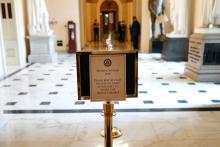
In the midst of this COVID-19 pandemic, we are seeing more than ever who is most vulnerable to contracting and dying of this new disease — and it’s a function of often very old and deeply embedded societal structures that create and perpetuate grotesque racial and economic inequity.

Samuel Cruz didn't want to choose between faith and politics. Then he found liberation theology.
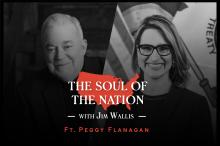
Peggy Flanagan, Lieutenant Governor of Minnesota, talks with Rev. Jim Wallis about state and federal responses to the coronavirus.
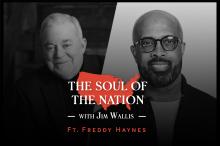
How the coronavirus pandemic has further revealed the structural and racial inequalities embedded in our nation.

Our faith in God is tied to experiences of health and sickness.

In this global COVID-19 pandemic, we are reeling from individual and collective grief. We are trying to figure out what life looks like on the other side, hoping for something “normal” but unsure of what that even means.

Nobody wants our society, economy, government, schools, or our families to stay on lockdown. Everybody wants our lives to re-open. But in order to do that in a way that protects health and lives, three biblical principles are necessary: truth, unity, and solidarity.

Dr. Oz, Dan Patrick, and a smattering of evangelical pastors utilize rhetoric that pits the long-term economic health of the United States against the short-term health of the actual, flesh-and-blood people living in the U.S. right now. Such rhetoric is dangerous to people’s immediate health, but it also puts in sharp relief a simmering debate among evangelicals: What does it mean to love one’s neighbor?

The book of Job is remarkably relevant in this moment and speaks to our present condition.

In years past, I’ve invited my non-Muslim friends and community members to visit my mosque for interfaith Iftars. These were opportunities to discuss similarities in fasting across Muslim, Christian, and Jewish traditions, as well as chances to share food and friendship. Now, these interfaith events are impossible. But there are still ways to come together in friendship and solidarity for Muslims during COVID-19 Ramadan.
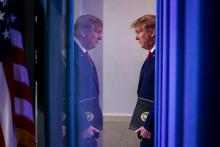
It’s easy to think a wave of post-virus racial violence like this couldn’t occur today. We’re not coming out of a major world war. And the modern civil rights movement, which traces its roots to actions of resistance during Red Summer, has secured more equal rights and protections for racial minorities. But we are facing official unemployment levels of nearly 20 percent, levels not seen since the Great Depression. Our civic ties have been fraying over the last few decades. And President Trump’s victory in the 2016 campaign laid bare the reality that our greatest divisions are marked not by policy disagreements but by the deeper fault lines of partisan, racial, and religious identity. Even before the pandemic, white supremacy and racial resentment resurfaced as visible features of our culture, religions, and politics.

Love him or hate him, Malthus is one of those figures who doesn’t go away.

How do we feed kids who are missing nearly 34 million meals each day now that schools are shuttered because of the coronavirus?
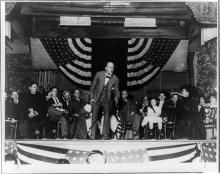
'He was of the working class and loyal to it in every drop of his hot blood to the very hour of his death.'

Trump’s daily press briefings resemble the kind of public idolatry that ancient Caesars engaged in.